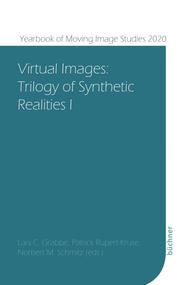Detailansicht
Virtual Images
eBook - Trilogy of Synthetic Realities I, Yearbook of Moving Image Studies (YoMIS)
ISBN/EAN: 9783963177675
Umbreit-Nr.: 3085063
Sprache:
Englisch
Umfang: 240 S., 13.04 MB
Format in cm:
Einband:
Keine Angabe
Erschienen am 08.12.2021
Auflage: 1/2021
E-Book
Format: PDF
DRM: Digitales Wasserzeichen
- Zusatztext
- Common boundaries between the physical reality and rising digital media technologies are fading. The age of hyper-reality becomes an age of hyper-aesthetics. Immersive media as well as image technologies like virtual reality enable a completely novel form of interaction and corporeal relation to and with the virtual image structures. VR Images contributes to the wide range of the hyper-aesthetic image discourse to connect the concept of dynamic virtual images with the approaches in modern media theory, philosophy, perceptual theory, aesthetics, computer graphics, art history and techno-art as well as the complex range of image science. Shared goal is a critical discussion of the specific epistemology of aesthetic and scientific approaches to VR. This volume discusses the relation of images and technological evolution in the context of virtual reality within the perspective of an autonomous image science.
- Autorenportrait
- Prof. Dr. Lars C. Grabbe studierte Philosophie, Soziologie und Neue Deutsche Literaturwissenschaft und Medienwissenschaften an der Christian-Albrechts-Universität zu Kiel. 2011 promovierte er an der Technischen Universität Chemnitz zu »Georg Simmels Objektwelt. Verstehensmodelle zwischen Geschichtsphilosophie und Ästhetik.« Ab 2010 war er Lehrbeauftragter für »Theorie und Geschichte symbolischer Formen« am Institut für Kunst-, Design- und Medienwissenschaften der Muthesius-Kunsthochschule in Kiel. 2014 wechselte er zudem an den Fachbereich Design der Fachhochschule Münster als Dozent für Medientheorie und Kommunikation. Dort ist er seit Juni 2017 Professor für Theorie der Wahrnehmung, Kommunikation und Medien. Forschungsschwerpunkte: Phänosemiose, Medientheorie und -philosophie, Bildwissenschaft, Wahrnehmungstheorie, Kommunikationstheorie, Ästhetik, Filmwissenschaft.
